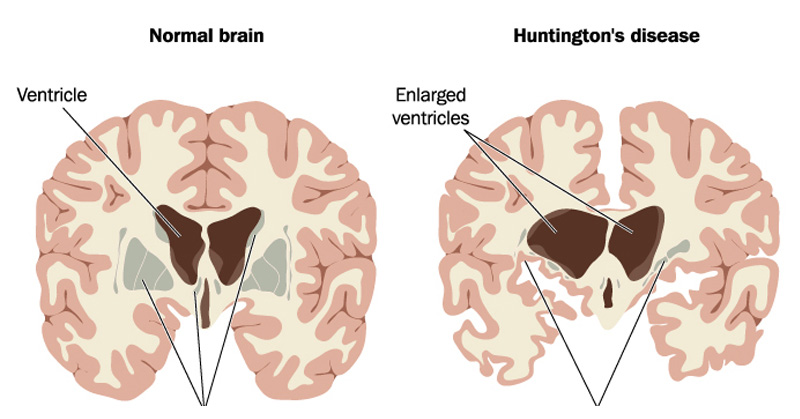Huntington’s Disease is a genetic brain disorder that causes drastic personality changes, loss of memory, and impaired motor skills, making it difficult for patients to live a normal life. But what could cause such a crippling illness? Well, a gene that is passed down from parent to child causes this disease. As the illness progresses, Huntington’s Disease symptoms worsen. (1)
While conventional Huntington’s Disease treatment involves medications to help control emotional and physical symptoms, natural Huntington’s Disease treatment focuses on maintaining a lifestyle to reduce inflammation and manage symptoms.
Huntington’s Disease Cause
All humans carry a gene that is linked to Huntington’s Disease, but only some people end up developing the disorder. Those who develop the disease inherit another specific gene that expands and worsens the condition. This expanded gene is passed down from parent to child. The fact that Huntington’s Disease cause is genetic means that it often devastates entire families. An offspring that inherits the affected gene has a 50% chance of the disorder progressing. (2)

Huntington’s Disease Symptoms
- Personality changes and mood disturbances
- Symptoms of depression
- Mood swings
- Memory loss
- Impaired judgment and reasoning
- Slurred speech
- Involuntary movements
- Difficulty swallowing and eating
- Loss of appetite and significant weight loss
Huntington’s Disease Stages
- Early Stage: Symptoms such as loss of balance, lack of coordination, trouble swallowing and trouble controlling the tongue. As time goes on, symptoms include involuntary movements, difficulty reasoning and mood changes. Patients are prone to mood fluctuations include depression and irritability.
- Middle Stage: Symptoms include a further loss of physical control over movements, due to damaged nerves. It becomes harder to perform ordinary activities and live a normal life. Symptoms include involuntary movements, shaking, shaking, slurred speech, trouble swallowing and trouble walking.
- Late Stage: After years of living with Huntington’s Disease, a patient becomes completely dependent on others and may live in a full-time facility. Symptoms include trouble speaking, chewing, eating and walking. The parts of the brain responsible for memory, language and comprehension continue to decline. (3)
Huntington’s Disease Treatment
1. Stay Active
Studies have shown that patients with Huntington’s disease can benefit from physical activity. Regular exercise helps lower stress levels and inflammation. Maintaining physical health for as long as possible can help patients maintain better control over their physical movements for longer. (4)

2. Reduce Inflammation
Reducing inflammation is an important part of Huntington’s disease treatment. Inflammation worsens the condition by causing free radicals to speed up, which quickens the progression of the disease. To lower inflammation, eat a nutrient-dense diet full of anti-inflammatory foods and limit use of harsh chemicals found in household cleaning products, beauty products and cigarettes.
3. Stall Weight Loss
Huntington’s disease symptoms include loss of appetite and weight loss. When weight loss occurs too quickly, a patient can experience serious health complications. To help fight health issues associated with being underweight and nutrient deficient, adjust your diet to ensure your body is getting the calories and nutrients it needs. (4)

4. Participate in Cognitive Training
When it comes to managing serious health conditions, following a routine can be helpful. Doctors often recommend that family members and caregivers help create an environment that limits stress and difficult decision-making. This may include:
- Using calendars and clear schedules
- Creating a predictable routine
- Setting reminders
- Keeping the living space organized
- Staying social and practicing new hobbies
- Breaking down complicated tasks into manageable steps
- Creating a calm living environment
- Avoiding family conflict, fights and other stressors
5. Try Natural Supplements
Studies have shown that creatine can help delay the onset of Huntington’s disease symptoms. Creatine is considered a safe and effective way to slow brain atrophy by restoring ATP and maintaining cellular energy. Talk to your doctor about using creatine as a supplement for Huntington’s disease. (5)


